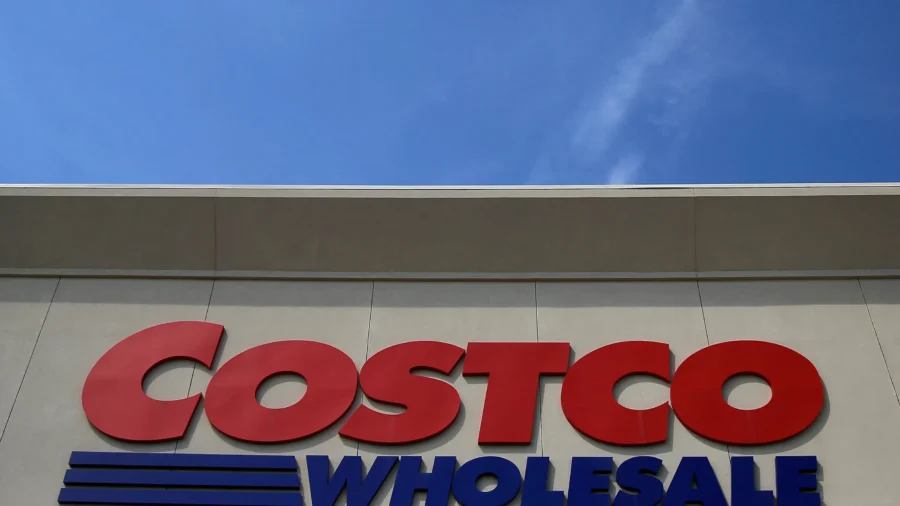Business Column: Analysis
Costco continued its winning streak in December thanks to a delayed holiday shopping season in 2024, with Cyber Monday falling in the last month of the year rather than in November.
After the market close on Jan. 8, the wholesale club based in Issaquah, Washington, reported net sales of $27.52 billion for the retail month of December—the five weeks ending on Jan. 5—which was a 9.9 percent jump from $25.03 billion the previous year. In addition, net sales for the first 18 weeks came to $94.04 billion, an 8 percent increase from $87.07 billion the previous year.
E-commerce led to comparable sales gains for the five weeks, up 34.4 percent, followed by a 9.3 percent gain in U.S. and 4.3 percent in Canadian sales.
The company attributed the strong e-commerce sales in December to the positive impact of an estimated 15 percentage points due to Thanksgiving, Black Friday, and Cyber Monday in 2024 occurring a week later than in 2023.
However, the wholesale club has consistently reported solid online and in-store sales in recent months, meaning that the robust December numbers are part of an ongoing trend rather than an aberration.
The sales results sent Costco’s shares nearly 2 percent higher in after-hours trading. The stock is up 41.37 percent over the past 12 months and 218.30 percent over five years, beating the S&P 500, up 25.99 percent and 82.82 percent over the corresponding periods.
Costco is in the right place at the right time and has the right value proposition for its customers. The place is merging online and offline sales, where shoppers can order merchandise online and pick it up in local stores the same day. This strategy has helped traditional brick-and-mortar store chains such as Costco, Walmart, and Target fend off Amazon’s challenge, as the e-commerce giant doesn’t have an extensive brick-and-mortar presence.
The timing for this strategy is almost perfect for Costco as it rides another trend: the popularity of wholesale clubs, as evidenced by Placer.ai, which shows Costco leading in-store visits, followed by BJ’s Wholesale Club and Sam’s Club.
Then there’s Costco’s value proposition, the relentless pursuit for superior product quality and customer services provided by dedicated employees, which create an exceptional shopper experience worth a membership fee.
“Costco’s strong December performance, with a 34.4 percent jump in e-commerce sales, reflects the strength of its business model and culture,” Georgios Koimisis, associate professor of economics and finance at Manhattan University, told The Epoch Times. “The company’s focus on delivering value, fair wages, and trust has built loyalty among employees and customers. Its ability to adapt to shifts, such as the later timing of Black Friday and Cyber Monday, and quickly pass cost savings to shoppers underscores its resilience.”
The company’s focus on superior product quality is also reflected in the pace at which it opens new stores. Unlike other traditional retailers, which open stores at a feverish pace, Costco opens stores slowly.
It currently operates 897 warehouses, including 617 in the United States and Puerto Rico, 109 in Canada, 41 in Mexico, 36 in Japan, 29 in the UK, 19 in Korea, 15 in Australia, 14 in Taiwan, 7 in China, 5 in Spain, 2 in France, and 1 each in Iceland, New Zealand, and Sweden. Costco also operates e-commerce sites in the United States, Canada, the UK, Mexico, Korea, Taiwan, Japan, and Australia.
The small store count leaves plenty of room for the company to grow, something Wall Street pays close attention to when valuing store chains. That could explain the company’s high valuation, as measured by the forward Price-to-Earnings ratio, which is twice as high as that of Walmart.
However, Koimisis sees a few challenges ahead for the wholesale club’s growth, such as tariffs, inflation, and supply chain disruptions that could create significant cost pressures, making it harder to sustain current pricing strategies.
“Expanding the Kirkland Signature private-label brand could be a key strategy to address these challenges, offering affordable, high-quality alternatives to national brands while reducing reliance on external suppliers,” he said. “Simultaneously, diversifying supply chains and investing in technology to manage bottlenecks will be essential.”
From The Epoch Times

